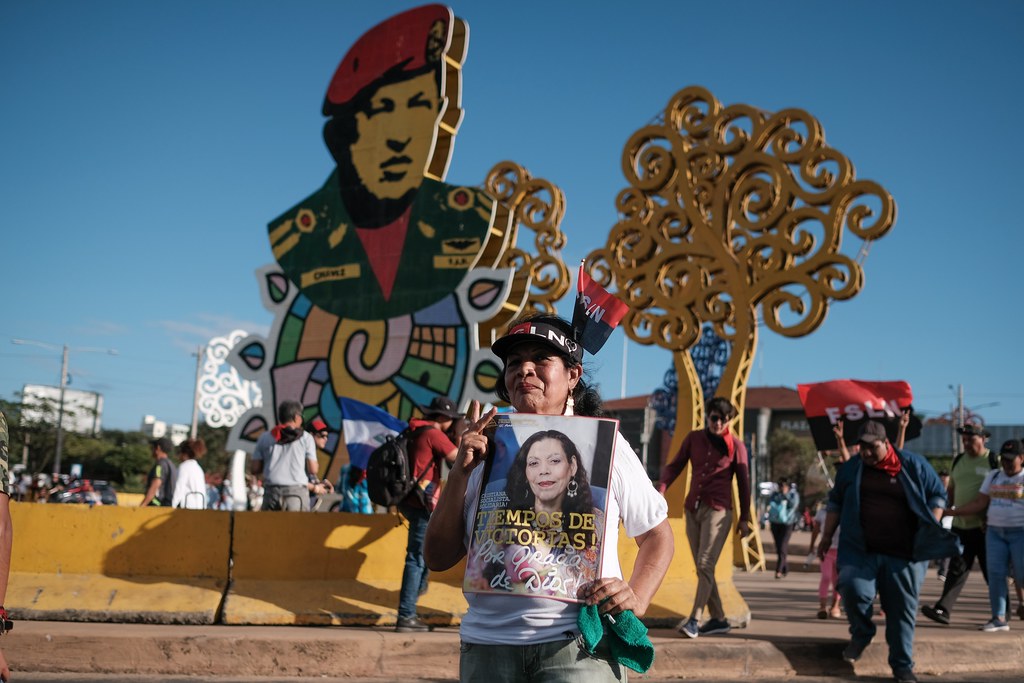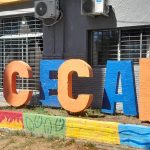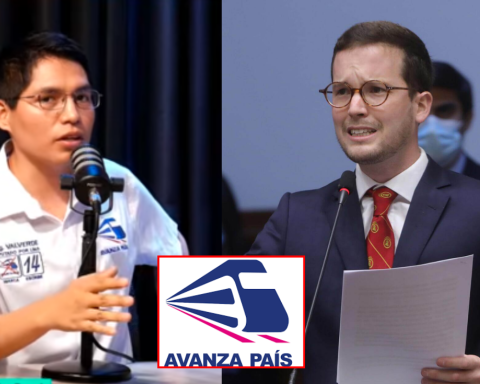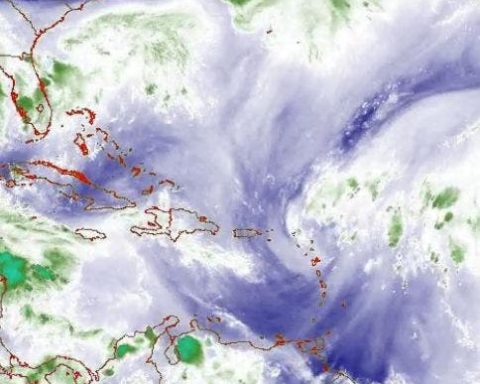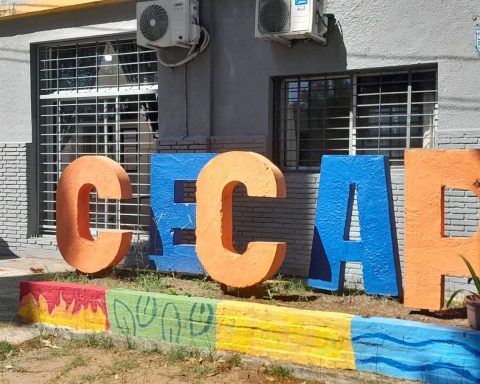“Clara” lives in her parents’ house with her little daughter. She is a single mother and works in the mayor’s office of a municipality in southern Nicaragua. She earns a little more than 9,000 córdobas (less than 260 dollars) a month, with which she must cover food expenses, support the payment of basic services and all the maintenance of her daughter who is already going to school. “The only thing I don’t spend money on is transportation, because I live less than ten blocks from work,” she says.
“Everything goes up in price every month and what they pay me does not give me. I have to take on everything, because my daughter’s father is only responsible when he feels like it, but it’s worse not having anything to survive on,” she says.
The basic basket in Nicaragua costs more than 16,000 córdobas a month, almost double the total salary of “Clara”. She says that, in her house, she, her parents and her brother “we gave her the cow to be able to cover the expenses”.
“Going for a walk, eating in the street or buying clothes is just a luxury that I can afford very rarely, especially when my aunts send me a remittance from the United States and Costa Rica as a gift,” she explains.
Also see: The 22 companies, front men and lawyers of the Ortega Murillo family in Nicaragua
He confesses that, in January, two months after the votes in which Daniel Ortega and Rosario Murillo were re-elected without electoral competition, he felt “a lot of anguish” for not knowing if there would be cuts or any salary increase.
Shortly before the end of the month, the regime’s vice president and spokeswoman, Rosario Murillo, announced that all public sector workers would receive a 3% salary adjustment. This adjustment, according to the regime’s spokeswoman, “corresponds to the increase in the needs of families.”
This new adjustment is the one corresponding to the maintenance of the value of State salaries, which during 2019 and 2020, after citizen protests against the regime, remained frozen. In July of last year, in the electoral context, an increase of 5% was announced, which was described by economists as “insufficient”.
“What the government does not say is that they raise us nothing compared to everything that prices rise, nor that they charge us more taxes, nor that they keep us more closely watched every day and that they force us to participate in more party activities. It is a total riot”, insists “Clara”.
“They raised me less than 300 pesos”
“Mónica” is the daughter of a single mother and has been an English teacher for four years at a school in León. Her monthly salary until January was about 8,700 cordobas. A month later she got an increase of 276 cordobas. However, she also increased her deductions: 45 cordobas from Social Security and more than 100 cordobas from Income Tax (IR).
“What I have left of such an increase is 131 córdobas, which is made little more because they began to pay me the value of my titles that were slow in accepting them to value it. One nothing, they pay only 250 córdobas, ”she details.
For “Mónica” what they increased does not guarantee even half of what the daily costs have increased in her house. “Cheese, rice, gas, fuel go up, everything goes up, nothing stays still,” she laments.
“The government wants one to kiss their feet because according to them they are giving us a gift, but it is all a mirage because they only increased a few pesos, they take more away from us. They don’t even let us enjoy our money because that doesn’t allow us to buy anything else that we bought before,” he says.
An economist consulted by CONFIDENTIALwho requested anonymity for fear of reprisals, states that “these increases are patches that only lessen the hard blow to pockets, but they are not a solution.”
“If state workers have only been increased 8% in four years, it means that many are still unable to cover the basic basket, because it increases at a faster rate than these salary adjustments,” he maintains.
Millionaire salaries versus misery salaries
President Daniel Ortega and his immediate family — his wife and Vice President Rosario Murillo, several of his children, daughters-in-law, ex-daughters-in-law, and other relatives — receive more than two million córdobas per month, equivalent to $67,500 in wages and salaries, according to an investigation of CONFIDENTIALbased on the official records of the Nicaraguan Social Security Institute (INSS) up to 2018 and the analysis of deeds from the Mercantile Registry of Managua.
Ortega earns 136,847 córdobas, which for “Alcides” is “a slap in the face”, since he earns just over 11,000 córdobas a month as a general practitioner, putting up with “carelessness, sun, mistreatment and party surveillance.”
“Daniel Ortega earns more in a month than I earn in a year and I assure you that I do much more for the country than he does, but one has to swallow fat and endure because if we don’t work we can’t eat,” he says.
For “Alcides” the salary increase “prescribed” by the regime “does not mean any impact because deductions also increased.” “That’s for me, now imagine for a nurse who earns 6,000 córdobas,” he says.
“I can assure you that there is a lot of repudiation, at least from the health sector, towards the authorities, but we cannot externalize it because they always keep us under surveillance both at work, in the streets or on social networks,” he says.
He even mentions that since the start of the covid-19 pandemic, working hours have been extended “until exhausting hours.” “That’s how the Minsa (Ministry of Health) works,” is the answer they get when they complain.
“In his last speech, Ortega recognized us for our sacrifices, but that is pure talk because they do not pay travel expenses when we work from eight in the morning to nine at night on those extensive vaccination days,” he reflects.
“Alcides” says that although the public sector pays health personnel better “the others do not go black on the streets, they do not have 24-hour days, and they do not live under pressure to support a political party.”
“In reality, one comes to value dedicating oneself to any other thing where one can earn the same and suffer less,” he claims.
“not enough”
Buying basic food in Nicaragua is increasingly expensive. In December 2021, to acquire the 24 foods included in the basic basket, Nicaraguans had to pay an additional 981 córdobas compared to the price that the food in the family basket had in January 2021.
Only the cost of the food products of the basic basket (calculated by the authorities with respect to the monthly purchase) exceeded 11,096.45 cordobas. In January 2021, it cost 10,115.63, according to official data.
“Fernando”, a worker at the Nicaraguan Company of Sanitary Aqueducts and Sewers (Enacal), feels disappointed with the direction the country is taking.
“We don’t know if this government will continue because the international community classifies it as illegitimate, but in the meantime it has us all kidnapped, while the cost of living is getting more and more expensive and sometimes we only have enough to eat,” he says.
In addition to that, there are many “injustices” because “there are many salary differences” within the same state institutions.
“Here the most servile, the one recommended by their party connections, the one who does nothing and dedicates himself to the party, is paid more, no matter how well one does his job,” he says.
In his opinion, the cost of living does not affect everyone equally, but it does affect “the vast majority” and proof of this is that the Government spends its time advancing payment dates for special dates or party events.
“That shows today’s bread, tomorrow’s hunger, because that does not mean any relief to the pocket. It’s just running out of money on a different date. It’s all part of a populist discourse that no one believes anymore, ”he mentions.
